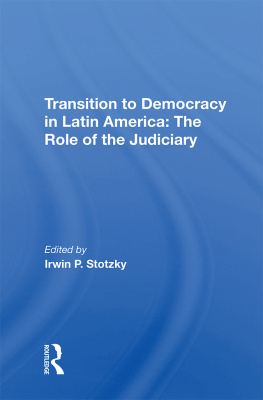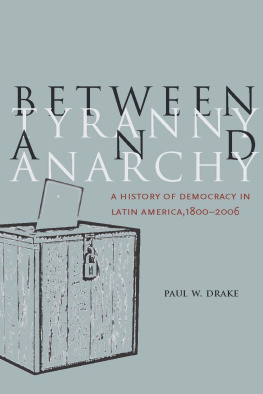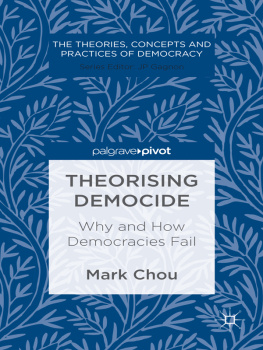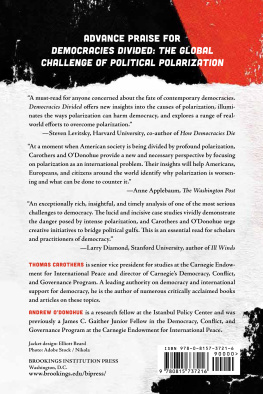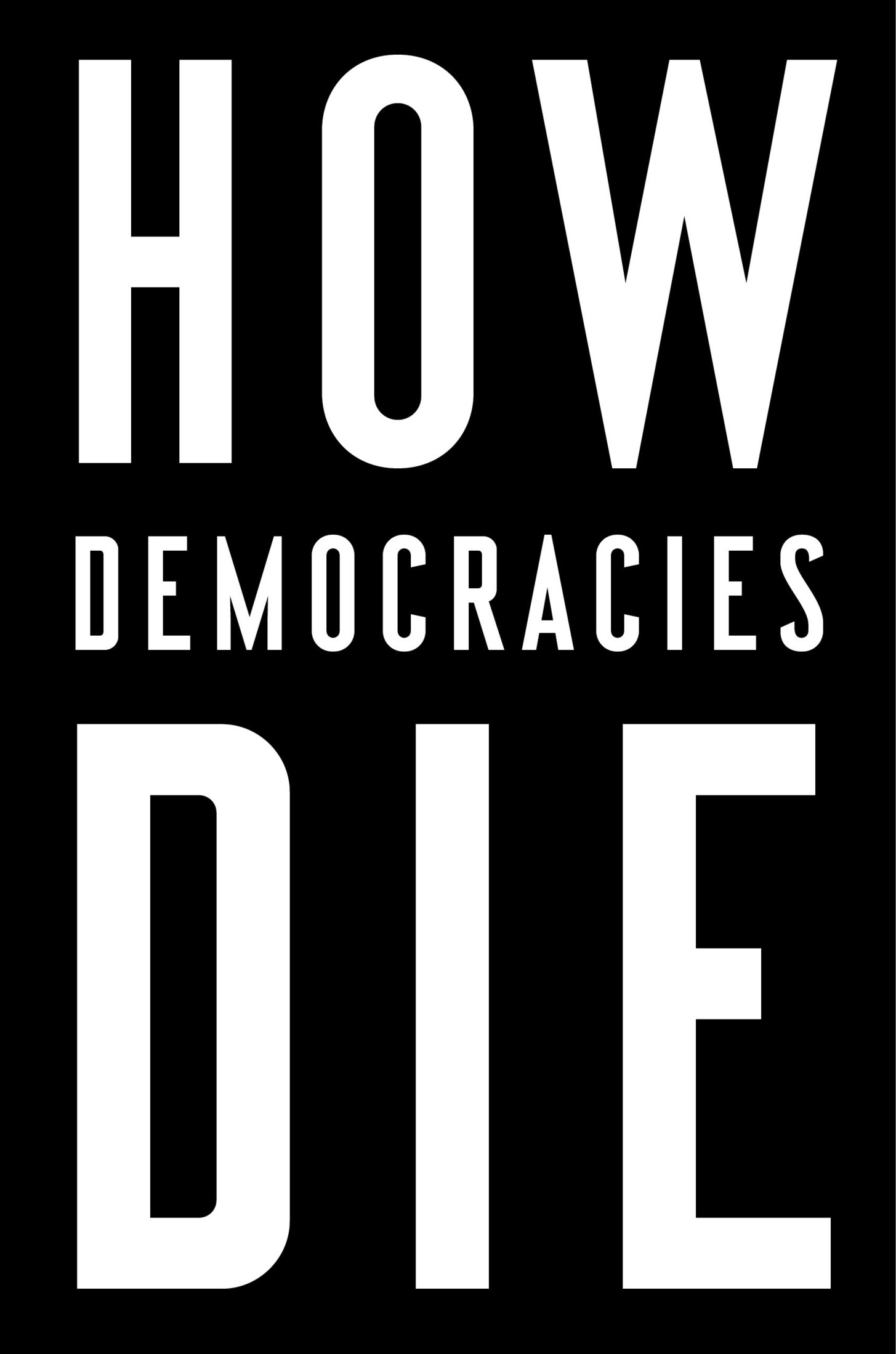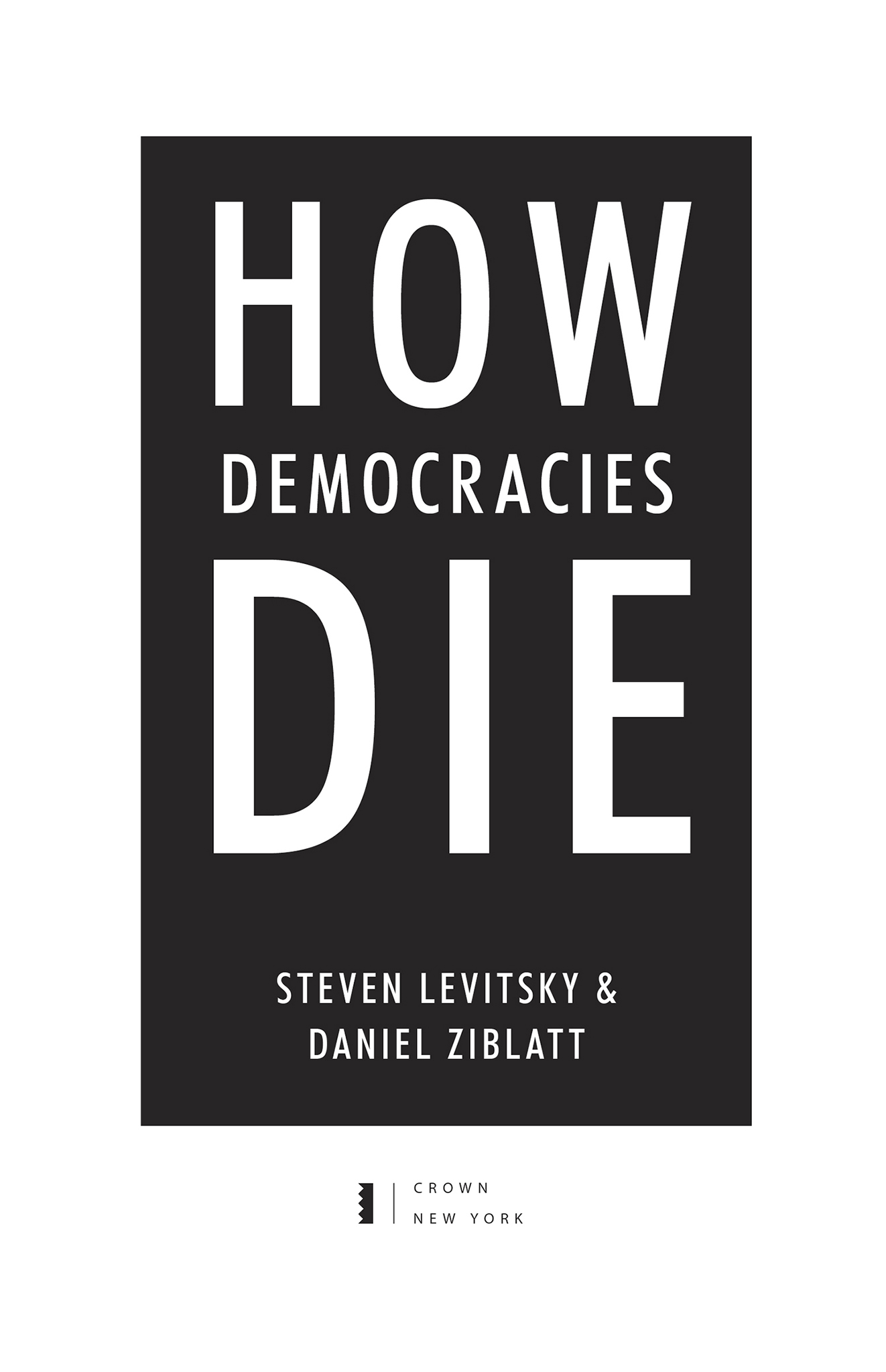All rights reserved.
Published in the United States by Crown, an imprint of the Crown Publishing Group, a division of Penguin Random House LLC, New York.
CROWN and the Crown colophon are registered trademarks of Penguin Random House LLC.
Names: Levitsky, Steven, author. | Ziblatt, Daniel, 1972 author.
Title: How democracies die / Steven Levitsky and Daniel Ziblatt.
Description: First edition. | New York : Crown Publishing, [2018] | Includes bibliographical references.
Identifiers: LCCN 2017045872| ISBN 9781524762933 | ISBN 9781524762940 (pbk.) | ISBN 9781524762957 (ebook)
Subjects: LCSH: Democracy. | Political culture. | DemocracyUnited States. | Political cultureUnited States. | United StatesPolitics and government2017
Introduction
Is our democracy in danger? It is a question we never thought wed be asking. We have been colleagues for fifteen years, thinking, writing, and teaching students about failures of democracy in other places and timesEuropes dark 1930s, Latin Americas repressive 1970s. We have spent years researching new forms of authoritarianism emerging around the globe. For us, how and why democracies die has been an occupational obsession.
But now we find ourselves turning to our own country. Over the past two years, we have watched politicians say and do things that are unprecedented in the United Statesbut that we recognize as having been the precursors of democratic crisis in other places. We feel dread, as do so many other Americans, even as we try to reassure ourselves that things cant really be that bad here. After all, even though we know democracies are always fragile, the one in which we live has somehow managed to defy gravity. Our Constitution, our national creed of freedom and equality, our historically robust middle class, our high levels of wealth and education, and our large, diversified private sectorall these should inoculate us from the kind of democratic breakdown that has occurred elsewhere.
Yet, we worry. American politicians now treat their rivals as enemies, intimidate the free press, and threaten to reject the results of elections. They try to weaken the institutional buffers of our democracy, including the courts, intelligence services, and ethics offices. American states, which were once praised by the great jurist Louis Brandeis as laboratories of democracy, are in danger of becoming laboratories of authoritarianism as those in power rewrite electoral rules, redraw constituencies, and even rescind voting rights to ensure that they do not lose. And in 2016, for the first time in U.S. history, a man with no experience in public office, little observable commitment to constitutional rights, and clear authoritarian tendencies was elected president.
What does all this mean? Are we living through the decline and fall of one of the worlds oldest and most successful democracies?
At midday on September 11, 1973, after months of mounting tensions in the streets of Santiago, Chile, British-made Hawker Hunter jets swooped overhead, dropping bombs on La Moneda, the neoclassical presidential palace in the center of the city. As the bombs continued to fall, La Moneda burned. President Salvador Allende, elected three years earlier at the head of a leftist coalition, was barricaded inside. During his term, Chile had been wracked by social unrest, economic crisis, and political paralysis. Allende had said he would not leave his post until he had finished his jobbut now the moment of truth had arrived. Under the command of General Augusto Pinochet, Chiles armed forces were seizing control of the country. Early in the morning on that fateful day, Allende offered defiant words on a national radio broadcast, hoping that his many supporters would take to the streets in defense of democracy. But the resistance never materialized. The military police who guarded the palace had abandoned him; his broadcast was met with silence. Within hours, President Allende was dead. So, too, was Chilean democracy.
This is how we tend to think of democracies dying: at the hands of men with guns. During the Cold War, coups dtat accounted for nearly three out of every four democratic breakdowns. Democracies in Argentina, Brazil, the Dominican Republic, Ghana, Greece, Guatemala, Nigeria, Pakistan, Peru, Thailand, Turkey, and Uruguay all died this way. More recently, military coups toppled Egyptian President Mohamed Morsi in 2013 and Thai Prime Minister Yingluck Shinawatra in 2014. In all these cases, democracy dissolved in spectacular fashion, through military power and coercion.
But there is another way to break a democracy. It is less dramatic but equally destructive. Democracies may die at the hands not of generals but of elected leaderspresidents or prime ministers who subvert the very process that brought them to power. Some of these leaders dismantle democracy quickly, as Hitler did in the wake of the 1933 Reichstag fire in Germany. More often, though, democracies erode slowly, in barely visible steps.
In Venezuela, for example, Hugo Chvez was a political outsider who railed against what he cast as a corrupt governing elite, promising to build a more authentic democracy that used the countrys vast oil wealth to improve the lives of the poor. Skillfully tapping into the anger of ordinary Venezuelans, many of whom felt ignored or mistreated by the established political parties, Chvez was elected president in 1998. As a woman in Chvezs home state of Barinas put it on election night, Democracy is infected. And Chvez is the only antibiotic we have.
When Chvez launched his promised revolution, he did so democratically. In 1999, he held free elections for a new constituent assembly, in which his allies won an overwhelming majority. This allowed the chavistas to single-handedly write a new constitution. It was a democratic constitution, though, and to reinforce its legitimacy, new presidential and legislative elections were held in 2000. Chvez and his allies won those, too. Chvezs populism triggered intense opposition, and in April 2002, he was briefly toppled by the military. But the coup failed, allowing a triumphant Chvez to claim for himself even more democratic legitimacy.
It wasnt until 2003 that Chvez took his first clear steps toward authoritarianism. With public support fading, he stalled an opposition-led referendum that would have recalled him from officeuntil a year later, when soaring oil prices had boosted his standing enough for him to win. In 2004, the government blacklisted those who had signed the recall petition and packed the supreme court, but Chvezs landslide reelection in 2006 allowed him to maintain a democratic veneer. The chavista regime grew more repressive after 2006, closing a major television station, arresting or exiling opposition politicians, judges, and media figures on dubious charges, and eliminating presidential term limits so that Chvez could remain in power indefinitely. When Chvez, now dying of cancer, was reelected in 2012, the contest was free but not fair:



